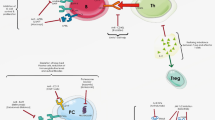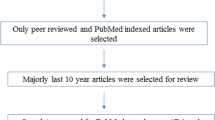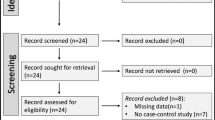Abstract
The predominance of the effector mechanisms by CD4 + T cells is a characteristic of inflammatory autoimmune diseases such as rheumatoid arthritis (RA). The CD40/CD40L costimulatory pathway contributes to these pathogenic mechanisms by promoting autoantibody production and inflammation. Aberrant expression of CD40 and CD40L in RA patients has been shown, the latter prevailing in females. However, contrasting results have emerged regarding the clinical associations of these findings. We determined the association of CD40 and CD40L expression with the clinical activity evaluated through DAS28 in RA patients. A total of 38 female RA patients and 10 age- and sex-matched control subjects were included. CD40 and CD40L mRNA expression was quantified by real-time qPCR, cell surface proteins were determined by flow cytometry, and protein soluble forms were determined by ELISA. The expansion of a CD4 + T cell subpopulation expressing CD40 was identified in the RA group. In addition, high frequencies of CD4 + CD40L + T cells expressing high levels of CD40L, increased levels of sCD40L and overexpression of CD40L mRNA were observed in these patients. Moreover, there was a gradual increase in CD40L when data were stratified according to DAS28, except for very active patients. No correlation was observed between the levels of mRNA, cell surface protein and soluble protein of CD40 and CD40L with the clinical features of RA patients. There is an altered expression of CD40L in female RA patients in association with clinical activity assessed by DAS28, these findings support the evidence that suggests CD40L as a marker of clinical activity.



Similar content being viewed by others
References
Smolen JS, Aletaha D, Barton A, et al. Rheumatoid arthritis. Nat Rev Dis Primers. 2018;4:18001.
Firestein GS, McInnes IB. Immunopathogenesis of rheumatoid arthritis. Immunity. 2017;46:183–96.
McInnes IB, Buckley CD, Isaacs JD. Cytokines in rheumatoid arthritis—shaping the immunological landscape. Nat Rev Rheumatol. 2016;12:63–8.
Elgueta R, Benson MJ, de Vries VC, Wasiuk A, Guo Y, Noelle RJ. Molecular mechanism and function of CD40/CD40L engagement in the immune system. Immunol Rev. 2009;229:189.
Peters AL, Stunz LL, Bishop GA. CD40 and autoimmunity: the dark side of a great activator. Semin Immunol. 2009;21:293–300.
Contin C, Pitard V, Itai T, Nagata S, Moreau JF, Déchanet-Merville J. Membrane-anchored CD40 is processed by the tumor necrosis factor-alfa-converting enzyme: implications for CD40 signaling. J Biol Chem. 2003;278:32801–9.
Menchén L, Marín-Jiménez I, Arias-Salgado EG, et al. Matrix metalloproteinase 9 is involved in Crohn’s disease-associated platelet hyperactivation through the release of soluble CD40 ligand. Gut. 2009;58:920–8.
Reinboldt S, Wenzel F, Rauch BH, et al. Preliminary evidence for a matrix metalloproteinase-2 (MMP-2)-dependent shedding of soluble CD40 ligand (sCD40L) from activated platelets. Platelets. 2009;20:441–4.
Choi WS, Jeon OH, Kim DS. CD40 ligand shedding is regulated by interaction between matrix metalloproteinase-2 and platelet integrin αIIbβ3. J Thromb Haemost. 2010;8:1364–71.
Yacoub D, Benslimane N, Al-Zoobi L, Hassan G, Nadiri A, Mourad W. CD154 is released from T-cells by a disintegrin and metalloproteinase domain-containing protein 10 (ADAM10) and ADAM17 in a CD40 protein-dependent manner. J Biol Chem. 2013;288:36083–93.
Eshel D, Toporik A, Efrati T, Nakav S, Chen A, Douvdevani A. Characterization of natural human antagonistic soluble CD40 isoforms produced through alternative splicing. Mol Immunol. 2008;46:250–7.
MacDonald KP, Nishioka Y, Lipsky PE, Thomas R. Functional CD40 ligand is expressed by T cells in rheumatoid arthritis. J Clin Invest. 1997;100:2404–14.
Liu MF, Chao SC, Wang CR, Lei HY. Expression of CD40 and CD40 ligand among cell populations within rheumatoid synovial compartment. Autoimmunity. 2001;34:107–13.
Guo Y, Walsh AM, Fearon U, et al. CD40L-dependent pathway is active at various stages of rheumatoid arthritis disease progression. J Immunol. 2017;198:4490–501.
Berner B, Wolf G, Hummel KM, Müller GA, Reuss-Borst MA. Increased expression of CD40 ligand (CD154) on CD4 + T cells as a marker of disease activity in rheumatoid arthritis. Ann Rheum Dis. 2000;59:190–5.
Kosmaczewska A, Ciszak L, Swierkot J, Szteblich A, Wiland P, Frydecka I. Alterations in both the activatory and inhibitory potential of peripheral blood CD4 + T cells in rheumatoid arthritis patients correlate with disease progression. Pathol Oncol Res. 2014;20:235–43.
Tamura N, Kobayashi S, Kato K, et al. Soluble CD154 in rheumatoid arthritis: elevated plasma levels in cases with vasculitis. J Rheumatol. 2001;28:2583–90.
Goules A, Tzioufas AG, Manousakis MN, Kirou KA, Crow MK, Routsias JG. Elevated levels of soluble CD40 ligand (sCD40L) in serum of patients with systemic autoimmune diseases. J Autoimmun. 2006;26:165–71.
Pamuk GE, Vural Ö, Turgut B, Demir M, Pamuk ÖN, Çakir N. Increased platelet activation markers in rheumatoid arthritis: are they related with subclinical atherosclerosis? Platelets. 2008;19:146–54.
Liao J, Liang G, Xie S, et al. CD40L demethylation in CD4 + T cells from women with rheumatoid arthritis. Clin Immunol. 2012;145:13–8.
Chen JM, Guo J, Wei CD, et al. The association of CD40 polymorphisms with CD40 serum levels and risk of systemic lupus erythematosus. BMC Genet. 2015;16:121.
Waid DM, Wagner RJ, Putnam A, et al. A unique T cell subset described as CD4loCD40 + T cells (TCD40) in human type 1 diabetes. Clin Immunol. 2007;124:138–48.
Waid DM, Schreiner T, Vaitaitis G, Carter JR, Corboy JR, Wagner DH. Defining a new biomarker for the autoimmune component of Multiple Sclerosis: Th40 cells. J Neuroimmunol. 2014;270:75–85.
Chomczynski P, Sacchi N. Single-step method of RNA isolation by acid guanidinium thiocyanate-phenol-chloroform extraction. Anal Biochem. 1987;162:156–9.
Schmittgen TD, Livak KJ. Analyzing real-time PCR data by the comparative C(T) method. Nat Protoc. 2008;3:1101–8.
Munroe ME, Bishop GA. A Costimulatory Function for T Cell CD40. J Immunol. 2007;178:671–82.
Cho CS, Cho ML, Min SY, et al. CD40 engagement on synovial fibroblast up-regulates production of vascular endothelial growth factor. J Immunol. 2000;164:5055–61.
Gotoh H, Kawaguchi Y, Harigai M, et al. Increased CD40 expression on articular chondrocytes from patients with rheumatoid arthritis: contribution to production of cytokines and matrix metalloproteinases. J Rheumatol. 2004;31:1506–12.
Lee HY, Jeon HS, Song EK, et al. CD40 ligation of rheumatoid synovial fibroblasts regulates RANKL-mediated osteoclastogenesis: evidence of NF-κB-dependent, CD40-mediated bone destruction in rheumatoid arthritis. Arthritis Rheum. 2006;54:1747–58.
Román-Fernández IV, Ávila-Castillo DF, Cerpa-Cruz S, et al. CD40 functional gene polymorphisms and mRNA expression in rheumatoid arthritis patients from western Mexico. Genet Mol Res. 2016;15:gmr15048775.
Román-Fernández IV, Sánchez-Zuno GA, Padilla-Gutiérrez JR, et al. The 3′-UTR (CA)n microsatellite on CD40LG gene as a possible genetic marker for rheumatoid arthritis in Mexican population: impact on CD40LG mRNA expression. Clin Rheumatol. 2018;37:345–53.
Lu Q, Wu A, Tesmer L, Ray D, Yousif N, Richardson B. Demethylation of CD40LG on the Inactive X in T Cells from Women with Lupus. J Immunol. 2007;179:6352–8.
Huang WX, Huang P, Hillert J. Systemic upregulation of CD40 and CD40 ligand mRNA expression in multiple sclerosis. Mult Scler. 2000;6:61–5.
Lian XR, Xiao R, Hu XH, et al. DNA demethylation of CD40L in CD4 + T cells from women with systemic sclerosis: a possible explanation for female susceptibility. Arthritis Rheum. 2012;64:2338–45.
Tung CH, Lu MC, Lai NS, Wu SF. Tumor necrosis factor-α blockade treatment decreased CD154 (CD40-ligand) expression in rheumatoid arthritis. PLoS ONE. 2017;12:1–12.
Wu SF, Chang CB, Hsu JM, et al. Hydroxychloroquine inhibits CD154 expression in CD4 + T lymphocytes of systemic lupus erythematosus through NFAT, but not STAT5, signaling. Arthritis Res Ther. 2017;19:183.
Valenzuela HF, Effros RB. Divergent telomerase and CD28 expression patterns in human CD4 and CD8 T cells following repeated encounters with the same antigenic stimulus. Clin Immunol. 2002;105:117–25.
Vallejo AN, Weyand CM, Goronzy JJ. T-cell senescence: a culprit of immune abnormalities in chronic inflammation and persistent infection. Trends Mol Med. 2004;10:119–24.
Van Kooten C, Gaillard C, Galizzi JP, et al. B cells regulate expression of CD40 ligand on activated T cells by lowering the mRNA level and through the release of soluble CD40. Eur J Immunol. 1994;24:787–92.
Vakkalanka RK, Woo C, Kirou KA, Koshy M, Berger D, Crow MK. Elevated levels and functional capacity of soluble CD40 ligand in systemic lupus erythematosus sera. Arthritis Rheum. 1999;42:871–81.
Chang YH, Lin IL, Tsay GJ, et al. Elevated circulatory MMP-2 and MMP-9 levels and activities in patients with rheumatoid arthritis and systemic lupus erythematosus. Clin Biochem. 2008;41:955–9.
Sanchooli J, Ramroodi N, Sanadgol N, Sarabandi V, Ravan H, Rad RS. Relationship between metalloproteinase 2 and 9 concentrations and soluble CD154 expression in Iranian patients with multiple sclerosis. Kaohsiung J Med Sci. 2014;30:235–42.
Acknowledgements
This research was supported by funding from the National Council of Science and Technology (CONACYT, Grant No. 180663), CONACYT-México-Universidad de Guadalajara, awarded to Muñoz-Valle JF. The funding source had no involvement in any phase of the study.
Author information
Authors and Affiliations
Corresponding author
Ethics declarations
Conflict of interest
The authors declare that they have no conflict of interests.
Ethical approval
All procedures were performed following the ethical guidelines established in the 1964 Declaration of Helsinki and its later amendments or comparable ethical standards. The study was approved by Comité de ética en Investigación y Bioseguridad, Centro Universitario de Ciencias de la Salud, Universidad de Guadalajara (reference No. 0122017).
Informed consent
Informed consent was obtained from all individual participants included in the study.
Additional information
Publisher's Note
Springer Nature remains neutral with regard to jurisdictional claims in published maps and institutional affiliations.
Rights and permissions
About this article
Cite this article
Román-Fernández, I.V., García-Chagollán, M., Cerpa-Cruz, S. et al. Assessment of CD40 and CD40L expression in rheumatoid arthritis patients, association with clinical features and DAS28. Clin Exp Med 19, 427–437 (2019). https://doi.org/10.1007/s10238-019-00568-5
Received:
Accepted:
Published:
Issue Date:
DOI: https://doi.org/10.1007/s10238-019-00568-5




